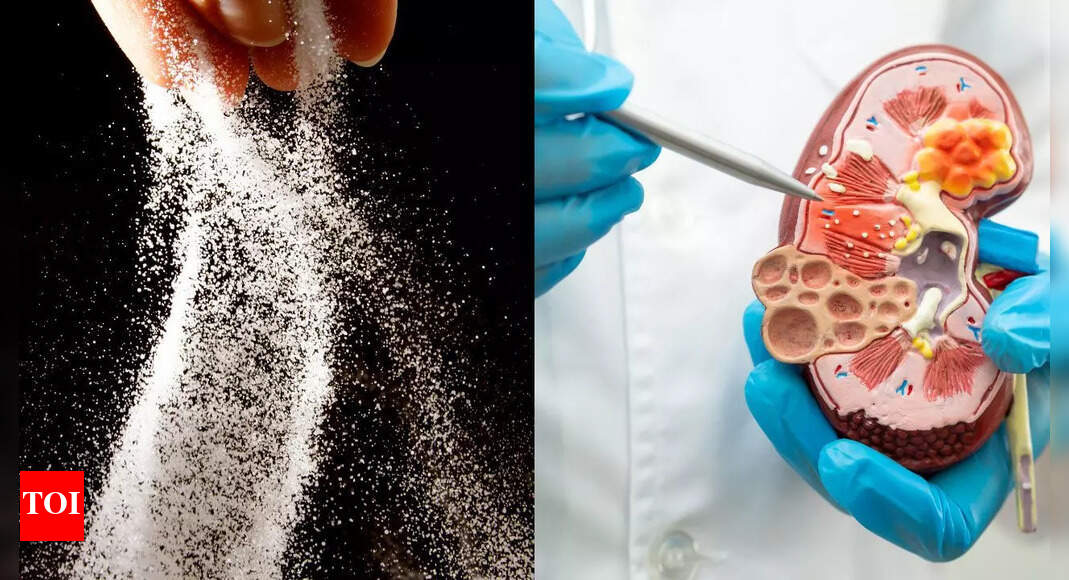Many people habitually add extra salt to their meals, whether it’s in home-cooked dishes, packaged snacks, or processed foods, often without realising the potential risks. What seems like a simple flavour enhancement can have serious consequences for kidney health. According to Dr Venkat Subramaniam, Senior Urologist and Executive Director at AINU Hospital, Chennai, excessive salt intake can strain the kidneys, increase the risk of high blood pressure, and even contribute to kidney stones or impaired kidney function over time. He highlights that small, practical adjustments in daily cooking and mindful food choices, such as using natural flavour enhancers like garlic, lemon, and herbs, can significantly reduce salt consumption while protecting kidney health. Awareness and gradual changes are key to long-term kidney protection.
How excessive salt intake affects kidney health
Dr Venkat Subramaniam explains that many individuals are unaware of the true amount of salt they consume each day. “Regularly consuming more salt than recommended can lead to significant kidney problems over time, including kidney stones, high blood pressure, and reduced kidney function,” he says. He emphasises that individuals already at risk of kidney disease must monitor their salt intake closely.High salt levels in the diet force the kidneys to work harder to balance sodium in the body, which can strain these vital organs. Over time, this strain can accelerate kidney damage, especially in people with pre-existing conditions such as diabetes or hypertension.
Simple cooking adjustments to protect your kidneys
Dr Subramaniam advises that protecting kidney health does not require drastic dietary changes. “You do not need to add a lot of salt to enjoy tasty meals. Natural ingredients like lemon, garlic, herbs, and spices can enhance flavour while reducing salt consumption. These additions make food enjoyable without putting unnecessary stress on your kidneys.”Incorporating such simple substitutes not only improves the taste of meals but also encourages a healthier long-term diet. Over time, small changes in cooking habits can have a significant impact on kidney function and overall health. A major concern highlighted by Dr Subramaniam is the hidden sodium present in packaged and processed foods. Even if individuals use minimal salt while cooking at home, processed items can easily push daily intake above safe levels.“Always check nutrition labels and be mindful of sodium content. Opt for fresh, whole ingredients whenever possible, as they are naturally lower in salt and safer for kidney health,” he explains.
Practical tips to reduce salt intake
According to Dr Subramaniam, small and consistent dietary adjustments are key. He suggests:
- Using lemon juice, garlic, herbs, and spices to enhance flavour naturally.
- Reading food labels carefully to avoid hidden sodium.
- Choosing fresh fruits, vegetables, and minimally processed foods.
- Gradually reducing added salt in cooking and at the table.
These minor but consistent changes can help preserve kidney health and prevent long-term complications.
Long-term benefits of lowering salt consumption
Maintaining awareness of salt intake and making modest dietary adjustments can have lasting effects on kidney health. Dr Subramaniam stresses that “a little awareness and conscious effort in everyday cooking can help protect your kidneys for years to come.”By being proactive and mindful of both added and hidden salt, individuals can enjoy delicious meals while significantly reducing their risk of kidney damage and related health problems.Also Read | Lung cancer symptoms on fingers: Finger clubbing, nail changes and other warning signs that could indicate serious health risks


